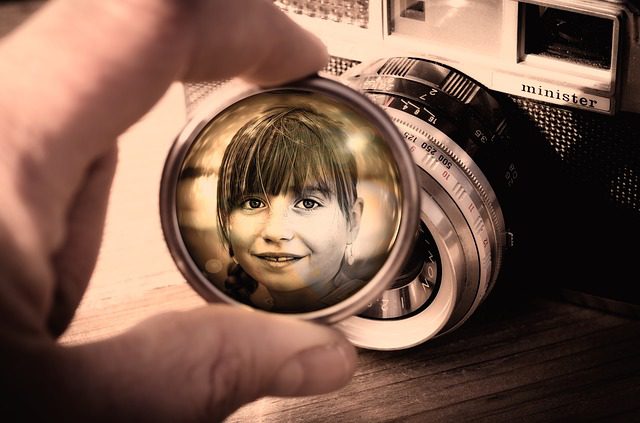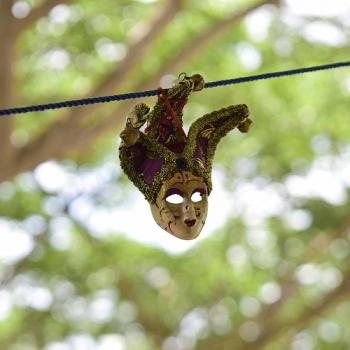What are the best five animated movies you’ve seen that were made in the last ten years?
I’d say the three Miyazaki movies: Ponyo, Arietty, and Up on Poppy Hill, and also Frozen and Brave.
What do you like so much about Ponyo?
It’s kind of funny, and I like how Miyazaki likes to put pollution in it to show people what can happen. Also I like [Richard] Wagner, and Ponyo has a little bit of Wagner in it, and that’s cool. And I like the whole setup–a boy is going down right before his mother has to go to work and he has to go to school, and he finds a bottle with a fish in it and a face on the fish. And it turns out that this can open up the unbalance of the whole world and the moon comes very close to the earth and it’s very exciting.
So you like how he gets a whole cosmic drama out of very ordinary events?
Yes, I like that sort of thing.
Is there any way in which you think watching Ponyo has changed how you view the world or how you live?
It makes me think a lot about pollution, and sometimes I stop and think, “Maybe is this going to cause a big pollution?” Movies don’t make me think about stuff for very long, unfortunately, but. . . .
What do you like so much about Arietty?
Sometimes I find myself wishing that there actually was a whole species of little people out there. It’s probably not true, but Miyazaki has a sort of effect on you that makes you stop and think.
I like how the little people take a lot of ordinary stuff like a clip that you clip bags with and turn it into a hair clip. Or they use an old flower pot for a stove. They steal ordinary things and turn them into works of art. And I like how they do pictures instead of windows. And I also like how all Miyazaki movies have some funny in them. In Arietty I like the part where it’s a very serious moment and suddenly “Caw, Caw, Caw!” the crow comes crashing into the window.
One more thing: in all Miyazaki movies, the bad character is not really bad, but they have their good reasons. Like Hara [the servant], she find these little people and thinks they are cool, so she puts the mother in a jar. But she is kind of mean to them. She doesn’t stop to think. That’s another thing that makes you stop to think. In movies and books, if there are characters who don’t stop to think, it makes you stop to think for some reason.
What about Up on Poppy Hill?
I always like movies that have no parents and the oldest daughter has to take care of everything. She has all this stuff to do and then she has to go to school. It makes you think about all the hard things in life. And it’s also got funny in it. My favorite funny character is Sachiko [the artist character who lives in the boarding house]. And when the mom comes home and she brings beef jerky from America, Riku [the little brother] says, “This is the best ham I ever ate.” And the mom says, “It’s beef jerky.” And Sachiko asks, “so is it pork?” And then Sauri [sp?] says, “Sachiko, beef means cow,” and they all laugh. It’s really funny. And I like the pattern: first they [the hero and heroine] don’t know they’re brother and sister, then they think they are, then they realize they really aren’t. I like weird and confusing stuff in stories and movies.
So how does this movie affect how you think or act?
It’s very moving, for one thing.
How does it move you?
Poppy Hill is my favorite Miyazaki I’ve ever watched. (I’ve only watched four.) It’s not the kind of moving that makes you cry, but a different kind of moving that makes you happy. And one more thing I’ve noticed about Miyazaki movies: the main characters usually have short and easy names like Umi and Shun. And one more think: the bit where he thinks they’re brother and sister, it’s like she shows him the photograph, he goes home, he takes a book, he opens at it (exactly the same picture Umi’s got), and he says “Yurichio Sauramura” [sp?] and looks up in a sort of dreamy way. I like that. And in the end he thinks he’s Sauramura’s real son and actually he’s Tachibana’s, and it’s just happy and moving. [Ed. note: I think she’s trying to describe Tolkien’s concept of “eucatastrophe,” maybe?]
On to Brave. . . .
Well, it’s been a while since I watched Brave, but I’ve seen many many ads since, and I like the idea that there’s this girl that thinks that she shouldn’t just sit in a chair and act like a lady and watch young men try and fight for her hand. She wants to fight for her own freedom–I mean not freedom basically but she doesn’t have to marry, and that’s just great. And it seems like she always has messy hair.
Another thing I like about it is the Queen’s name is my middle name, Eleanor [hers is spelled Elanor, after Tolkien, actually]. The king is a bear hunter and–what’s the girl’s name [I look it up, because I don’t remember either] Merida turns her mother into a bear, and the king tries to hunt his own wife, and it’s just a big mixup. And it turns out that that story that her mother told her was about that same witch that tricked Merida into turning her mother into a bear by accident. That same witch turned that oldest son into a bear as well. Her mother is already turned into a bear and Merida goes down into a cave for some reason–cause she’s curious–and she sees these carvings on the floor and she sees the oldest, and it’s like back-facing and you see these red eyes in the darkness and it’s kind of creepy, and then this big bear comes forward and she’s like “Aaah!” and she gets on her mother’s back to get away faster and she just shows “Whhewww,” and they’re off. Like “come on, let’s get away from this bear.” That creepy moment–”Red eyes–what’s going to happen–jump!” I think that’s it.
Anything about how it makes you think or act?
Well, it makes me think a lot about standing up for myself like she does in the story. She’s always standing up to her mother and father like, “I don’t want to marry some dumb prince! I want to roam the world! I want to have messy hair!”
So it makes you more likely to talk back to your parents?
Not really, but talking back to others and standing up for myself.
And then in the end her mother softens and they’re riding along together and they have a lot of fun and. . . I’ve forgotten how her mother turns back into a bear? Why do I keep forgetting lots of things about Brave? it’s one of my favorite movies and I’ve forgotten about a quarter of it. But I’ve seen loads of ads. Yep–that’s it!
So finally Frozen. . . .
I like how it’s sort of like The Princess and the Frog in the Disney version–so much changes but it’s the same theme. It’s like Frozen and [Hans Christian Andersen’s] the Snow Queen–so much has changed but it’s still the same theme. Elsa is like Kay and the Snow Queen [in Andersen] combined. She’s the one who has the snow powers, but she’s also the one Anna has to go after to rescue.
What does that change about Andersen’s story?
In the Snow Queen, the Snow Queen is bad, but in this one the Snow Queen is good but she just can’t control everything. She can’t control her own powers–it’s like “pshoooo” [this is how C. told me to transcribe the noise she made, when I complained about it].
How does this make you react differently to the story or make it have a different effect on you?
Well, Frozen doesn’t have as much of an effect on me as the other stories I’ve mentioned, but I still like it.
Which version of the story do you prefer, Andersen’s or Disney’s? [I just read the Andersen story to her last week, so it’s fresh in her mind.]
That’s hard to say, but I think I like them equal.
What do you think about Prince Hans?
Clever and sneaky. He pretends to love Anna. One minute I think, “why doesn’t he pretend to love Elsa, because she’s the Queen?” but then I think, because he thinks Elsa would be a lot wiser and wouldn’t be fooled. Also he’d have a harder time getting to Elsa because she doesn’t want the gates to be opened and Anna likes to run around. Anna was the one he met first.
Some people think that the transformation to a villain is too sudden.
Well, I like the sudden. The first time I watched it at my friend’s birthday party I felt like, “Oh goodness, I mean why isn’t Elsa letting them [marry]–there’s no reason.” And then when Anna is hit by Elsa’s blast of magic and Hans is a villain it’s sudden, but great. [describes scene in which Hans reveals his villainy.] And then when [Olaf the snowman says] “Some people are worth melting for,” it’s funny.
So if you met someone and fell in love with him suddenly, would you be more likely to mistrust him because of that movie?
We. . . . ll. . . .
It’s a very personal question, I know.
It’s a very hard question, because it’s hard to know what I would do, because that’s never happened.
Anything else about Frozen?
Anna has been trapped in the castle for years, right? She isn’t allowed to go out of the walls. And then suddenly she runs out and bumps into Hans, and they fall into a boat. She suddenly falls in love with Hans, and it turns out he betrays her. It’s funny and then it turns out that was a pretty serious moment, because that was a big mistake.
If you were to rank these movies in order of preference, what would it be?
- Brave [apparently we should buy Brave?]
- Up on Poppy Hill
- Frozen
- Arietty
- Ponyo. I mean, I like Ponyo a lot, but maybe I like it a tiny bit less than Arietty.
Are there qualities all these movies have in common that make you like them?
All of them are serious yet funny. Everyone of them has a little bit of funny in it, but a lot of seriousness going along with it too.
Anything else?
Not really.














